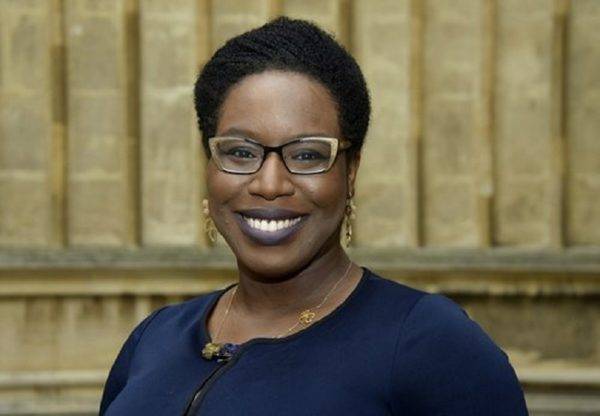This African Author Just Won The Prestigious Caine Prize – And Her Work Is Both Bohemian And Brilliant

Lesley Nneka Arimah has won the 2019 Caine Prize for her book titled; Skinned. The Nigerian author took home the prize money for her work of fiction which calls out society’s double standards with respect to women.
You know how people say the third time’s the charm? Well, it’s probably true for one Lesley Nneka Arimah who just gobbled up this year’s USD 12.5 K Caine Prize for African Writing at the third time of asking.
Having fallen short on two occasions previously — first in 2016 for the title story of her collection and then again in 2017 for “Who Will Greet You at Home?” — the Nigerian writer did claim the gold this time. And she did it in no ordinary way too.

Source: brittlepaper.com
Nneka became the sixth Nigerian to win the prestigious prize by putting together a somewhat quirky story which talks about a parallel universe where single women remain unclad until they get married. The Nigerian author called this piece of work Skinned, and the real message it conveyed wasn’t nudity (back off, lewd folks!) Skinned was an effort to highlight the disparity in the treatment of married and unmarried women in the Nigerian society.
Her work appears to have caught the eye of judges as it dished out a unique perspective of the struggles of women for inclusion. Lesley Nneka Arimah’s winning work shakes up the status quo in an effort to knock established social hierarchies off their perch, go toe-to-toe with outdated traditions, and explore new possibilities for the women of today’s world.
Her work brings to life a dystopian universe occupied by strong characters where friendships are stretched to their very limits, innocence is taken away and readers are treated to a whole new perspective on life.
Skinned chronicles the life and times of Ejem who is born into a culture where girls are forced to go unclad at a certain age and stay so until they are able to land a spouse. According to excerpts from the book, Ejem had been forced to take off her clothes when she turned 15 as tradition dictated.
She had cried and despaired but there was no helping it. Actually, the children of the wealthy in society were not subjected to such demeaning treatment as such rich folks could get away with keeping their daughters covered for long, up until the girl child could secure “wife-cloth.”
But Ejem had not been so fortunate. She was the daughter of a poor man in a village where girls were stripped as early as possible, some even at age 10, and it was beyond time as far as he was concerned.
The work of fiction chronicled the many travails and few triumphs of Ejem and the witty, mischievous delivery of the story may have caught everyone’s attention and never let go.
Nneka, who was born in the UK, grew up in Nigeria. In a sit-down with the BBC, she offered that the inspiration for the literary work was derived from a conversation with a friend who described marriage in Nigeria as something that “gives unconventional women cover to be themselves“.

“She is quite strange and her strangeness was something her parents had warned her that she should get rid of in order to get married,” Nneka said of her friend. “When she got married, without compromising, everything that was strange about her was suddenly OK.” And this is the double-standard the Nigerian author called out in her work.
Founded in 2000, the Caine Prize — named after the late Sir Michael Caine, former Chairman of Booker Plc and Chairman of the Booker Prize management committee — recognises short stories of 3,000 to 10,000 words published in English by African writers. Lesley Nneka Arimah is the latest recipient of the award.
Her short stories have also received the Commonwealth Short Story Prize and an O. Henry Prize. She was selected for the National Book Foundation’s 5 Under 35 and her debut collection What It Means When a Man Falls from the Sky won the 2017 Kirkus Prize, the 2017 New York Public Library Young Lions Fiction Award, and was selected for the New York Times/PBS book club among other honours.
The other Caine Prize shortlisted stories for 2019 were Tochukwu Emmanuel Okafor’s All Our Lives (Nigeria), Ngwah-Mbo Nana Nkweti’s It Takes A Village Some Say (Cameroon), Cherrie Kandie’s Sew My Mouth (Kenya), and Meron Hadero’s The Wall (Ethiopia).
Featured Image Courtesy: CBS